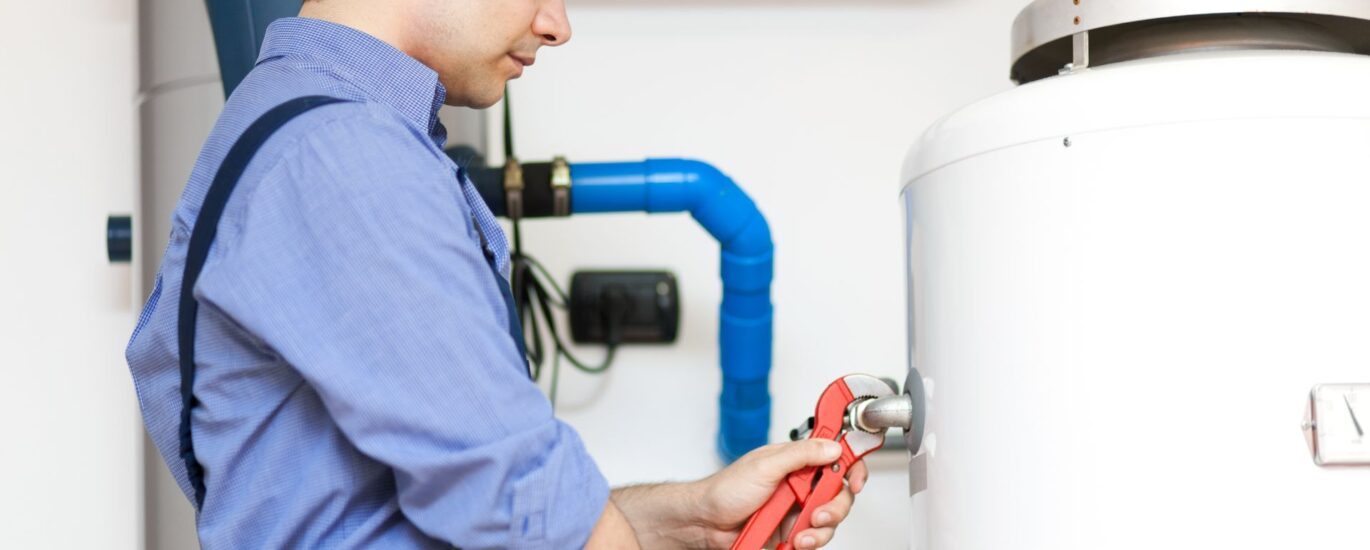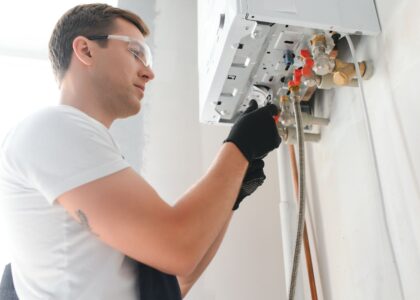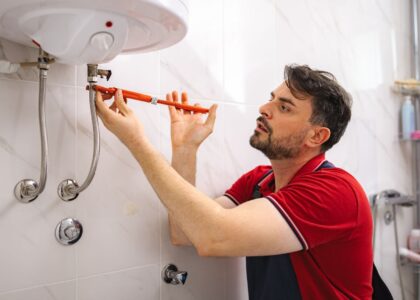Introduction
Often, the difference between a simple repair and a full-blown replacement lies in catching problems early. In this post, we’ll highlight subtle warning signals that many homeowners miss, and we’ll provide proactive steps and solutions to fix or delay them. Timely action often means cheaper and easier repairs.
Hidden Warning Signs You Should Watch For
These are signs that many homeowners overlook—but they can be harbingers of trouble:
- Slight discoloration or cloudiness in hot water
- Minor galvanic corrosion or rust flakes when you drain small amounts
- Heat cycles more frequently than normal
- Slight hiss or tapping sounds when the unit is idle
- Water pressure drop when multiple hot taps are on
- Light leakage under nearby pipes or drip trays
- Occasional thermostat fluctuations
When you notice one or more of these, it’s time to take action. You can often prevent a bigger failure.
Diagnostics: What to Check Yourself Before Calling for Repair
When you notice suspicious signs, do a quick self-check:
- Turn off power/gas and inspect all visible plumbing connections
- Drain a few gallons and look for sediment, rust, or debris
- Check the pressure relief valve—see whether it drips or operates (carefully)
- Check temperature settings on the thermostat
- Listen closely during idle periods—any noise is a clue
- Inspect the area around the unit for slight moisture
If anything feels off, make the call for Water Heater Repair.
Small Fixes You Can Try (Safely)
Some minor adjustments can help you buy time until a professional arrives:
- Adjust thermostat to a safe, moderate temperature
- Tighten minor loose fittings (if you have plumbing experience)
- Flush a small amount of water to help remove debris
- Open the pressure relief valve gently to test (with caution)
- Turn off the water heater if you suspect serious leakage and leave hot water taps open
These are temporary solutions, not substitutes for professional repair.
How a Professional Repair Technician Helps
Once you call in a technician specializing in Water Heater Repair, here’s how they assist:
- Full diagnostic analysis (beyond what you can see)
- Access to replacement parts and tools
- Ability to repair internal components safely
- Assurance the unit is returned to working order
- Advice tailored to your usage patterns
- Assessment whether further repair or replacement is prudent
Professionals can manage challenges you can’t (e.g. internal corrosion, sensor malfunctions, gas components).
Quick Actions That Prevent Major Damage
When a repair need is detected, swift responses help:
- Stop the problem: shut off power or gas and isolate water flow
- Call for repair: schedule a technician right away
- Avoid using hot water: until the unit is cleared
- Check surrounding areas: to prevent water damage
- Save error codes or photos: many modern units report codes that help diagnosis
These steps limit damage and cost.
Real Examples: What Could Go Wrong If You Wait
- A small leak in a fitting worsens into a major floor leak
- Sediment clogs cause heating failure or element burnout
- Minor corrosion becomes a tank rupture
- Failing pressure relief valve leads to overpressure damage
- Ignoring gas system issues leads to flame failure or unsafe conditions
Timely repair prevents escalation.
Repair vs Replace: Checklist for Decision-Making
Use this checklist when your technician presents you options:
- Age of unit: older than 10–12 years? Replacement may be better
- Cost of repair vs replacement
- Number and type of broken components
- Efficiency after repair
- Likely future repairs
Repair is usually the first path, but this decision framework helps you choose wisely.
Staying Ahead: Preventive Routine to Avoid Repairs
To reduce the need for repair altogether:
- Mark a maintenance date on your calendar (flush, inspect)
- Keep a record of all past repairs and events
- Monitor hot water consistency, color, smell
- Schedule brief inspections, especially if your area has hard water
- Consider water softeners or filtration if sediment is recurring
Prevention is the most cost-effective approach.
Conclusion
Catching water heater trouble early often means a quick repair instead of a full replacement. Paying attention to subtle signs, doing basic self-checks, and engaging professionals when necessary can save headaches and money. If you suspect any issue with your heater, don’t wait—visit our Water Heater Repair page at https://speedyplumberslongbeachca.com/water-heater-repair/ or connect via https://speedyplumberslongbeachca.com/contact-us/ to schedule a check.





